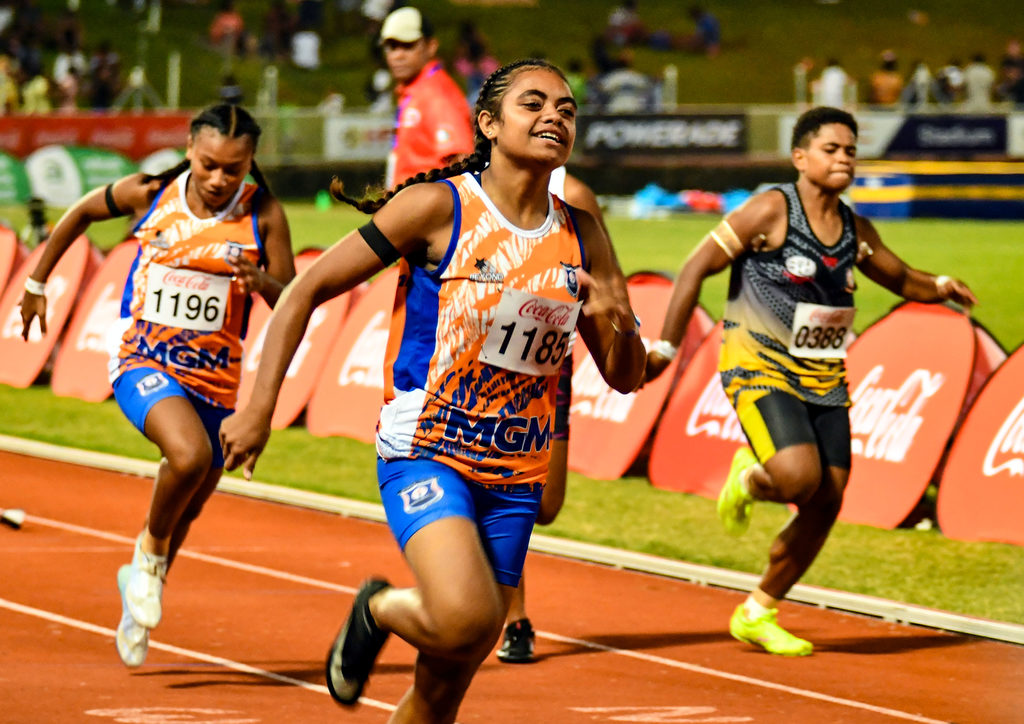The world we live in is a badly fractured place.
Every single day we see, read and hear news about escalating crime and the prevalence of injustice and human rights abuse.
Numbers keep going up. Victims of violence are getting younger by the day and perpetrators are getting grossly perverted.
When things like youth violence break out, especially in the very neighbourhoods where we raise our loved ones, we begin to realise how our homes, families and religions are finding it an uphill battle to impact and influence our children’s attitudes and behaviour.
Our young people’s values and sense of what is good are being redefined and distorted. We are quickly drowning in a sea where unfolding events are shockingly degrading, propagated by social media, technology and a breakdown in values.
But history tells us that people who are torn apart morally and dangerous have the propensity to change.
And the good news is — even in the most miserable of times we can still find solace in sports. We can put our differences aside and cheer on our friends and family, and people we may not know.
Yes, sports have a pivotal role in reducing conflicts and promoting peace in the community.
In the ninth century BC, Iphitos the king of Elis once sought advice from the oracle of Delphi about what should be done to save Greece from the brink of civil war and pestilence.
The great oracle of Deplhi instructed Iphitos to organise a peaceful sporting competition to help bring to an end to the conflict that was hounding the Greeks.
It is said Iphitos gathered his fellow royals and created the tradition of the Olympic truce. Under this peace accord or ekecheria, all conflict was to end seven days before and after the sporting competition to allow competitors and their supporters to enjoy and be part of the games.
Through the sacred truce and the Olympic games, the longest lasting peace accord in history was created.
Olympism was revived in 1896 and the Olympic truce was reintroduced in 1994. It remains an ideal of the Olympic movement and contributes to a peaceful future for mankind through the educational value of sport.
The late Nelson Mandela knew the great potential sports had. He used the 1995 Rugby World Cup to heal racial and political division in South Africa and help unite all citizens. This was during his term as the first black president.
“Sport has the power to change the world. It has the power to inspire,” Mandela once said.
“It has the power to unite people in a way that little else does. It speaks to youth in a language they understand. Sport can create hope where there was only despair.”
In 2016, when Fiji won gold in rugby sevens at the Rio Olympics there was an unprecedented show of public emotions and euphoria. The event unified our divided nation.
In 2018, during the opening of the 23rd Winter Olympic Games in Pyeongchang, South Korea, athletics from both North and South Korea marched side by side in frigid temperature under a unified flag.
They even fielded a combined women’s hockey team which displayed to the world a rare moment of public unification.
In recent years, the Fijian Drua home games have been able to mobilise support from a wide cross section of Fijian society. Rugby is a sport that everyone can enjoy.
Just as the Olympic movement brings together the world to a great sports festival, promoting peace, friendship, solidarity and fair play, the Coca-Cola Games also bring the young people of Fiji together to enjoy a few days of clean and healthy athletics rivalry
The Coca-Cola Games or Fiji Finals, ended yesterday after three days of fierce competition. What made it special was that it was the competition’s 50th anniversary.
Like previous Coca-Cola Games, this year’s brought together people from all over Fiji to enjoy fun, food, festivities and friendships.
For 50 years the games have become platforms for displaying talent and leadership capabilities.
Some of our children use it as stepping stones to securing scholarships, becoming national icons and launching promising careers in sports. Others use it to create friendships, learn how to discipline themselves and overcome personal challenges.
Even if children do not win any event, they should be reminded about the importance of taking part and challenging oneself to do better next time. Every experience must be appreciated as part of the process of learning and self-discovery.
Although sport is occasionally tainted by allegations of widespread corruption and doping, it is a unifying tool for peace in the world and in our community.
In August 2013, the UN general assembly adopted a resolution establishing April 6 every year as the International Day of Sport for Development and Peace.
The day encourages people around the world and their governments to participate in sports. It also aims to raise awareness about sport’s potential as a development tool.
Studies have shown that for every dollar invested in sports, there is a return of $20 and these returns come in the form of economic growth, job creation and the promotion of tourism.
While opening this year’s games, Minister for Youth and Sports, Jese Saukuru, said the Fiji Finals was more than a game; a tool for promoting good health, mental strength, gender equality, humility and harmony.
He assured athletes saying government would continue to invest in programs that nurtured talents and see the growth in Fiji’s secondary student population.
As the extinguished games’ torch waits for another year to burn again, we hope the friendships forged, opportunities discovered and good values learned from the competition, live on the hearts and lives of our young people.
Until we meet on this same page same time next week, stay blessed, stay healthy and stay safe.



